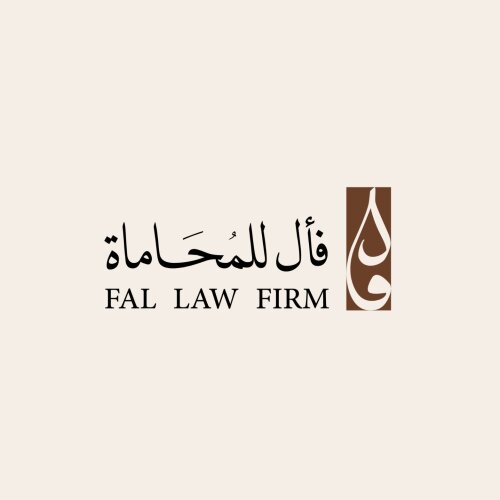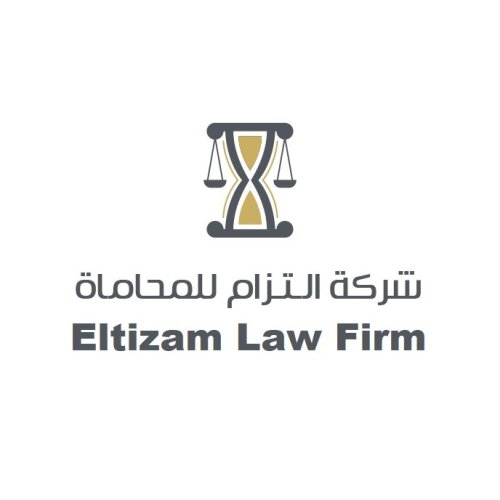Best Sanctions & Export Controls Lawyers in Saudi Arabia
Share your needs with us, get contacted by law firms.
Free. Takes 2 min.
Or refine your search by selecting a city:
List of the best lawyers in Saudi Arabia

About Sanctions & Export Controls Law in Saudi Arabia
Sanctions and export controls are legal frameworks implemented to regulate the movement of goods, services, technology, and financial transactions across borders. In Saudi Arabia, these laws are put in place to ensure compliance with international obligations, safeguard national security, and promote economic interests. The Saudi government actively aligns its sanctions and export controls policies with United Nations Security Council Resolutions and coordinates with international partners while also applying its own specific restrictions in response to evolving geopolitical situations. These regulations affect individuals and companies involved in cross-border trade, finance, and technology transfers.
Why You May Need a Lawyer
Legal advice is crucial in the field of sanctions and export controls, as violations can have serious consequences such as heavy fines, loss of trade privileges, business disruptions, or criminal prosecution. You may need a lawyer in common situations such as:
- Conducting due diligence on overseas partners or markets
- Navigating regulatory licensing for exporting sensitive goods or technology
- Responding to inquiries or investigations from Saudi authorities
- Interpreting updates to international and local sanctions lists
- Ensuring compliance with rules on dual-use items or restricted destinations
- Addressing blocked or frozen assets related to sanctions enforcement
- Developing internal compliance programs for businesses
- Managing disputes or enforcement actions involving suspected breaches
Local Laws Overview
Saudi Arabia’s sanctions and export controls laws are grounded in several key legislative instruments and cabinet decisions. The principal laws include the “Export Control Law” and its Implementing Regulations, which set out requirements for exporting items of strategic importance, including dual-use goods and military equipment. Violations are investigated and enforced by relevant authorities such as the Saudi Export Control Authority (SECA) and the Saudi Customs Authority.
Saudi Arabia maintains strict lists of goods and entities subject to export restrictions, especially regarding national security, weapons proliferation, and adherence to embargoes mandated by the United Nations or the Gulf Cooperation Council (GCC). Notification, licensing, and end-user certification processes are often required before transferring goods, services, or technologies beyond the Kingdom’s borders. The authorities also monitor financial transactions to ensure compliance with targeted sanctions against specified individuals or organizations.
It is essential for companies and individuals to stay current on changes as these laws are frequently updated in response to international developments.
Frequently Asked Questions
What are sanctions and export controls?
Sanctions are legal measures taken by a government to restrict or ban certain types of transactions with specific countries, entities, or individuals for reasons such as security, foreign policy, or human rights. Export controls regulate the transfer of specific goods, technology, or services abroad to protect national security and economic interests.
Who oversees sanctions and export controls in Saudi Arabia?
The primary governmental bodies are the Saudi Export Control Authority (SECA), the Ministry of Commerce, the Saudi Customs Authority, and the Saudi Arabian Monetary Authority depending on the type of restriction. These authorities enforce compliance with local and international obligations.
What items are subject to export controls in Saudi Arabia?
Items subject to export controls include military goods, dual-use items (which can be used for civilian or military purposes), technologies, and software with strategic importance. Controlled items are listed in the law and are updated regularly.
Do Saudi Arabian laws reflect international sanctions?
Yes, Saudi Arabia enacts its own regulations but also closely follows United Nations Security Council sanctions and coordinates with the GCC and its international partners.
What penalties can apply for violations?
Penalties for breaches can include fines, seizure of goods, business license suspension, blacklisting, and, in serious cases, criminal prosecution leading to imprisonment.
Do I need a license to export goods or technology?
Yes, if you are exporting items on the controlled lists or to certain destinations, you must obtain a license or special authorization from the Saudi authorities. The process involves submitting detailed information about the goods, their use, and the recipient.
What are the main steps to ensure compliance?
Key compliance steps include screening customers and suppliers, checking product classifications, securing necessary licenses, maintaining records, and training staff about the laws and procedures.
How do sanctions affect financial transactions?
Sanctions can require financial institutions to block or freeze assets, refuse transactions, and report activities involving listed parties to the authorities.
Can foreign companies be affected by Saudi export control laws?
Foreign companies doing business in or through Saudi Arabia, or partnering with Saudi businesses, may fall under local export controls or be required to demonstrate compliance in trade transactions.
Where can I check if a person or company is sanctioned?
Lists of sanctioned entities and persons are published by relevant Saudi authorities and are frequently updated. Legal counsel can assist in screening against these lists before concluding any transaction.
Additional Resources
Several Saudi government agencies and international organizations provide guidance and assistance regarding sanctions and export controls:
- Saudi Export Control Authority (SECA)
- Saudi Customs Authority
- Ministry of Commerce
- Saudi Arabian Monetary Authority (SAMA)
- United Nations Security Council - for international sanctions references
- Chambers of Commerce in Saudi Arabia
- Legal consultancies specializing in trade, compliance, and export regulations
Next Steps
If you believe you are affected by Saudi Arabia’s sanctions and export controls laws or are considering engaging in relevant cross-border activities, taking the following steps is recommended:
- Consult with an experienced legal professional in sanctions and export controls law to assess your risk and compliance needs
- Gather comprehensive information about any transactions, goods, technologies, or business partners involved
- Review current Saudi regulations and any official announcements from relevant authorities
- Implement internal compliance measures to manage ongoing risks
- If facing investigations or penalties, seek immediate legal representation to protect your interests
Do not wait until an issue arises or enforcement action is taken. Proactive legal advice and compliance planning are essential to navigate the complex landscape of sanctions and export controls in Saudi Arabia.
Lawzana helps you find the best lawyers and law firms in Saudi Arabia through a curated and pre-screened list of qualified legal professionals. Our platform offers rankings and detailed profiles of attorneys and law firms, allowing you to compare based on practice areas, including Sanctions & Export Controls, experience, and client feedback.
Each profile includes a description of the firm's areas of practice, client reviews, team members and partners, year of establishment, spoken languages, office locations, contact information, social media presence, and any published articles or resources. Most firms on our platform speak English and are experienced in both local and international legal matters.
Get a quote from top-rated law firms in Saudi Arabia — quickly, securely, and without unnecessary hassle.
Disclaimer:
The information provided on this page is for general informational purposes only and does not constitute legal advice. While we strive to ensure the accuracy and relevance of the content, legal information may change over time, and interpretations of the law can vary. You should always consult with a qualified legal professional for advice specific to your situation.
We disclaim all liability for actions taken or not taken based on the content of this page. If you believe any information is incorrect or outdated, please contact us, and we will review and update it where appropriate.
Browse sanctions & export controls law firms by city in Saudi Arabia
Refine your search by selecting a city.
















